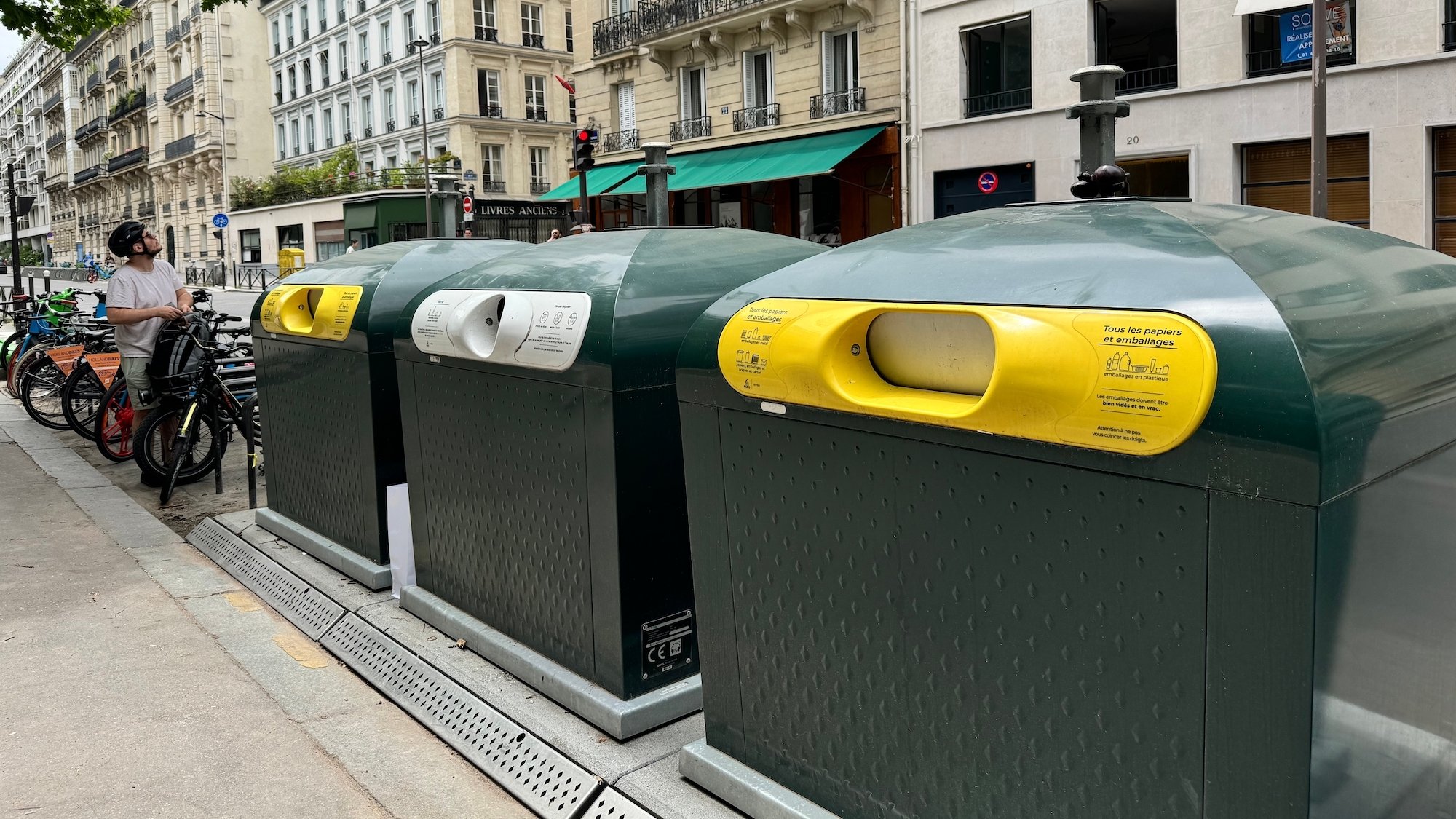Maybe you already knew this, or maybe this article is going to revolutionize the way you sort your waste. You just cooked a delicious dish full of vegetables, and as usual, you're about to toss the peels straight into the regular trash can. Big mistake! Since January 1, 2024, sorting organic waste has become mandatory across France with the AGEC law. Throughout this year, sorting bins have popped up all over the capital. Wherever you live in Paris, there’s definitely a sorting bin just three minutes away from you!
Depuis le 1er janvier, les collectivités ont l’obligation de développer des solutions de #tri séparatif à la source concernant les #déchets alimentaires
— Phenix (@phenixfr) September 22, 2024
Tri des #biodéchets alimentaires : neuf mois après la #loiAGEC, quel bilan ?#AGEC #Compost #Antigaspi https://t.co/VHfuUezxLp
All food waste can be thrown here
To help you out, the City of Paris has created a map listing all the collection points in the capital. What can you put in these bins? All food waste: peels, eggshells, meal leftovers, as well as expired food taken out of their packaging. You can throw them in loose or in a compostable bag or kraft paper. Plastic is, of course, banned from these sorting bins. These dedicated food waste modules are available 24/7 and complement the Trilib' for recycling glass, plastic, metal, cardboard, and clothing.
Recycling Food Waste
These sorting bins are emptied several times a week, with the waste collected and then transformed into biogas used to power buses and garbage trucks in the capital. The leftovers are used as fertilizer by farmers. On average, each resident produces 75 kg of waste, of which 25% is food waste. Through this local and national initiative, this waste can be recycled. Think about it the next time you cook or clear the table: using these sorting bins will keep your trash cans less full and you'll be doing a wonderful thing for the planet !
41% des français admettent jeter leurs déchets dans la rue.
— Cobra effect (@Cobra_FX_) July 21, 2024
Chez les jeunes (-35 ans), c’est une explosion :
29% jette des emballages, des papiers ou des mouchoirs (14% il y a 3 ans)
27% ses mégots (+9%)
45% des déchets organiques (+8%)
21% des bouteilles ou des canettes (+13%) pic.twitter.com/Nslm4bXMFb
